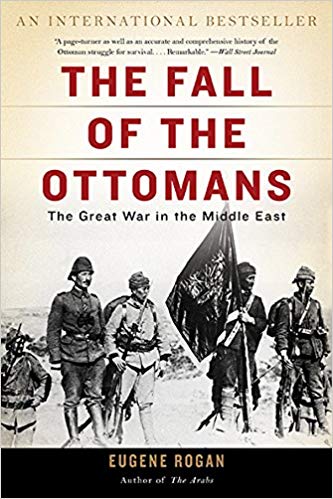The Fall of the Ottomans Audiobook – Eugene Rogan

text
The last thing individuals of the Footrest realm needed in autumn 1914 was one more battle. In the six years leading up to that disastrous year they had actually seen a sultan deposed and their tremendous and greatly inefficient military damaged. The Fall of the Ottomans Audiobook – Eugene Rogan Free. In numerous wounding wars, they had yielded Libya to Italy and all their European areas– including what is currently Bulgaria, big chunks of Greece, Bosnia, Serbia and also Albania– to freedom. Currently their Young Turk leaders were home siding with Germany, because the Kaiser looked more than likely to help them restore several of that shed area, or at least stay clear of the dismantlement of the realm. The effects of that decision– the great battle that formed the Center East, the problem that made the battle international– create the grand tale that Eugene Rogan informs in his most recent book.
Visitors of his previous job, The Arabs, will certainly understand just how easily he deals with several motifs, ambitious stories as well as a crowd of personalities. Blogging about the collapse of an empire that, in 1914, still consisted of all of what is now Turkey, Iraq, Syria, Lebanon, Jordan, Saudi Arabia as well as Egypt demands those abilities, as well as more. Discovering something new to claim concerning a conflict that of its most famous individuals called “a related activity of a sideshow” would certainly seem to be an obstacle, particularly with other books just recently released on the subject. Some of these have taken a look at private theaters, a lot of obviously the Arab rebellion, while others (such as Kristian Coates Ulrichsen’s The First World War in the center East) cover the whole battle.
So what does Rogan bring to the subject? For one point, he has considerable background expertise, as one would expect from the supervisor of the Middle East Centre at Oxford University. To this he has included extensive study. The majority of histories of the Middle East in this period have been written from a western perspective, since British, French and also German archives have actually been open longer and are, generally, even more obtainable. Rogan has made use of little-used Ottoman and also Arab product.
He has actually likewise brought a quality of vision and also of description to the battle, whether sketching out the intents of armed forces commanders as well as the effects of their plans on the ground, or when picking a phase title. “Destruction of the Armenians”, as an example, will win him no buddies amongst those Turks still in denial regarding the genocide, for it defines with dismaying clarity the strategy of Talaat Pasha, the Turkish leader, as well as his consultants Dr Mehmed Nazim and Dr Behaeddin Shakir: that there ought to be absolutely nothing less than “the destruction of the substantial majority of Footrest Armenians” in order to make certain there would not suffice of them delegated defend an independent homeland. Turkish authors, consisting of the Nobel laureate Orhan Pamuk, have actually just recently encountered jail on treason charges for mentioning the genocide.
As Rogan informs it, participants in the center East had various factors for going into the conflict: the British battled to protect the Suez canal as well as the Gulf oilfields; the Turks was afraid Russian infringement and also hoped to regain region shed prior to the excellent battle; the Germans sought to destabilise the British empire, the Russians yearned for Istanbul as well as Anatolia …
Rogan examines these larger geopolitical objectives while additionally providing a human face to the military interactions that they created, using a variety of voices– from a low-ranking Ottoman paramedic, to an Australian poet, an Arab from Jerusalem as well as an emir from the Hejaz. The Fall of the Ottomans Audio Book Online. The story requires these voices to make emotional the regular bungling by commanders, and similarly constant fearlessness of soldiers (and the challenge) on all sides– as, for instance, when the inadequately furnished Turkish 3rd Army fought the Russians in the Caucasus, in the snow, with neither heavy coats nor boots; or when British planners took too lightly the stamina of Ottoman supports along the Dardanelles and also Gallipoli, with huge loss of life.
Several of this is already acquainted: the account of the Arab revolt adds little to what has been informed before. Yet also the acquainted has resonance, such as General Maude’s persistence to the battered people of Baghdad that his soldiers were “liberators”. Or foreign secretary Arthur Balfour’s declaration that the British federal government would favour the production of a Jewish homeland as long as it did not infringe on “the civil and spiritual civil liberties of existing non-Jewish communities in Palestine”. Or the negative German adjustment of a Footrest call for jihad against Britain, in an effort to stir Indians versus the crown.
That vibration includes relevance to this complete and also soaking up publication, because it reminds us that the postwar Middle East negotiations were as flawed as the problems imposed on Germany, and that subsequently clarifies why the land they fought over then is still being opposed today.